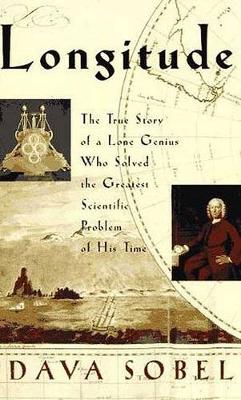Stranger Than!
1 total work
Anyone alive in the 18th century would have known that "the longitude problem" was the thorniest scientific dilemma of the day - and had been for centuries. Lacking the ability to measure their longitude, sailors throughout the great ages of exploration had been literally lost at sea as soon as they lost sight of land. The quest for a solution had occupied scientists, and their patrons for the better part of two centuries when, in 1714, England's Parliament upped the ante by offering a king's ransom to anyone whose method or device proved successful. The scientific establishment throughout Europe had mapped the heavens in both hemispheres in its certain pursuit of a celestial answer. In stark contrast, one man, John Harrison, dared to imagine a mechanical solution - a clock that would keep precise time at sea, something no clock had been able to do on land. This work tells the story of this epic scientific quest, and of Harrison's 40-year obsession with building his perfect timekeeper, known today as the chronometer. It also provides a brief history of astronomy, navigation and clockmaking.
